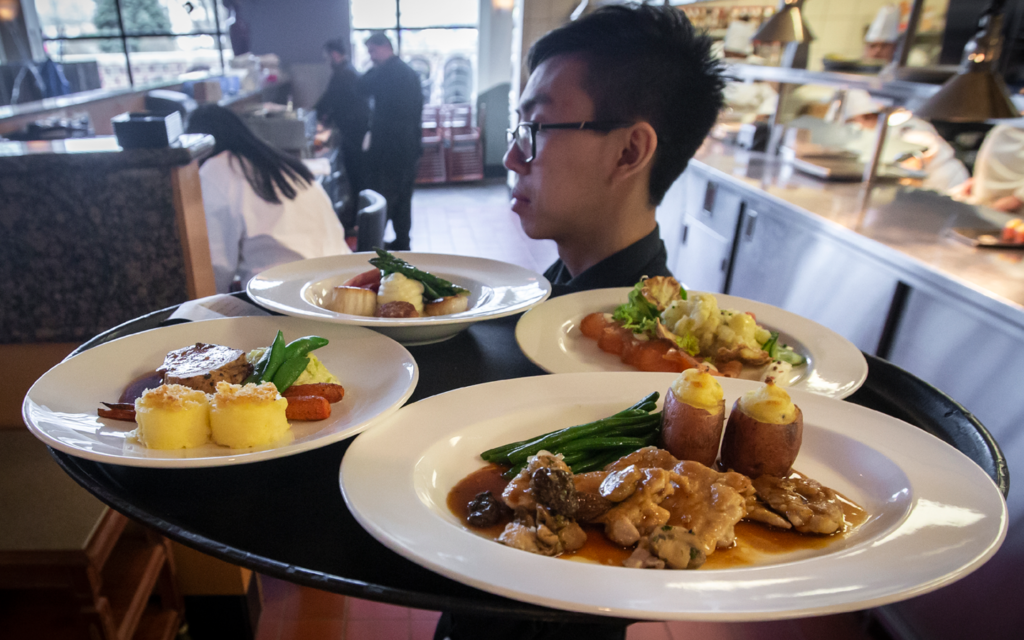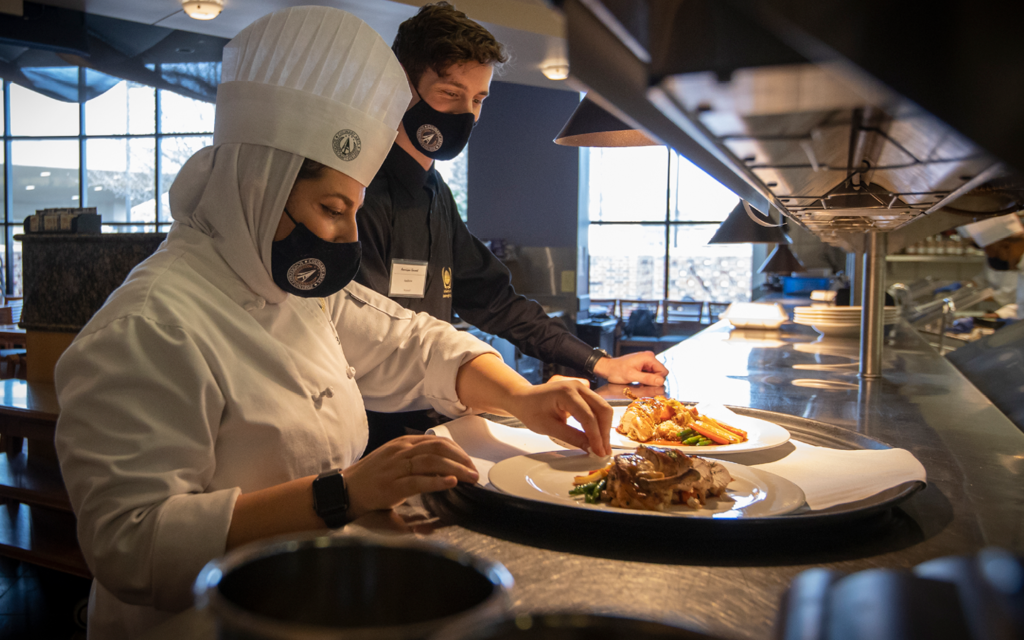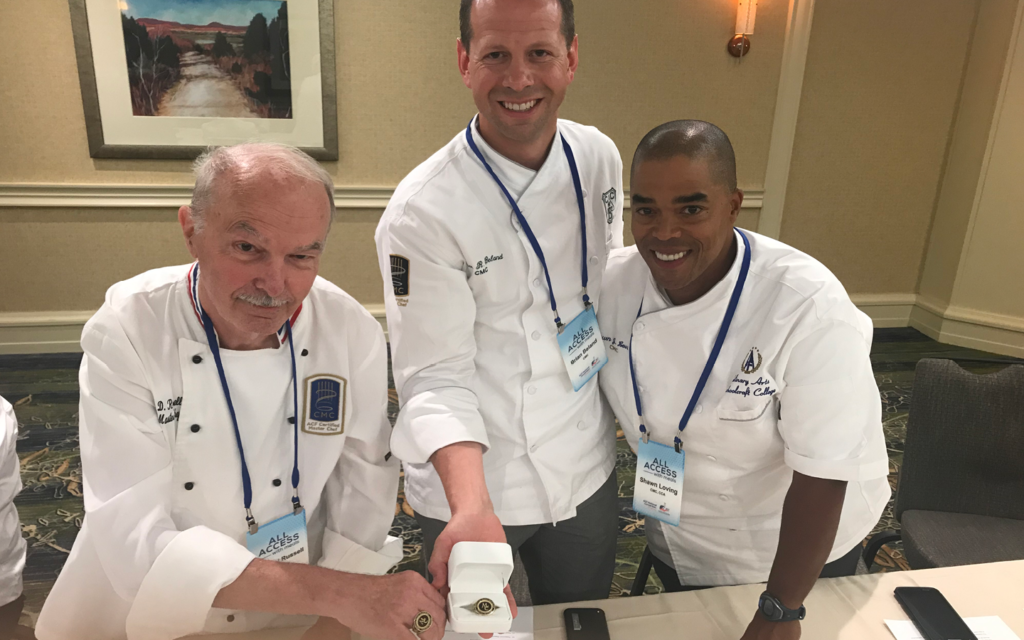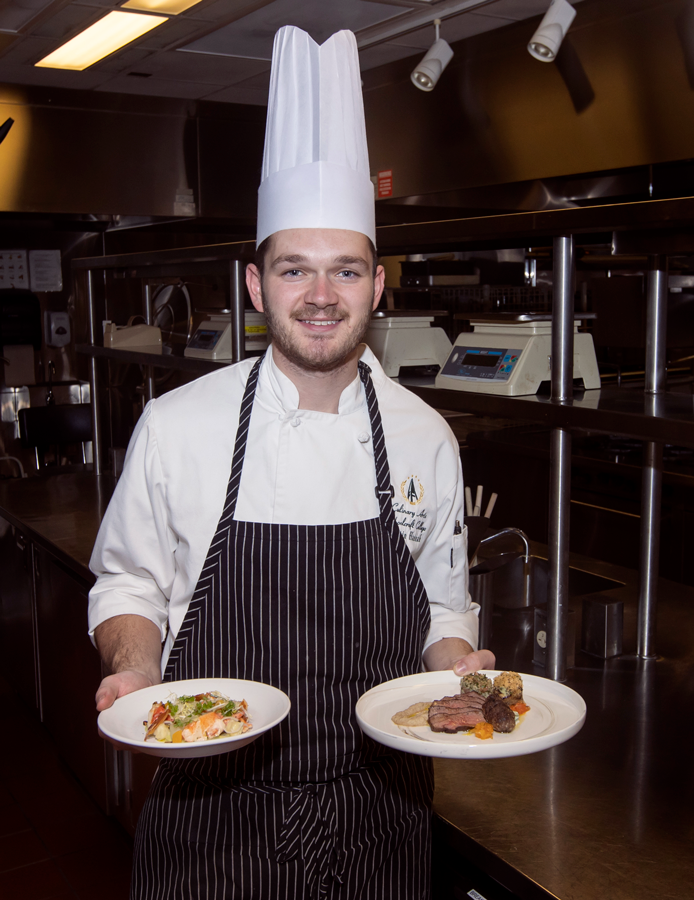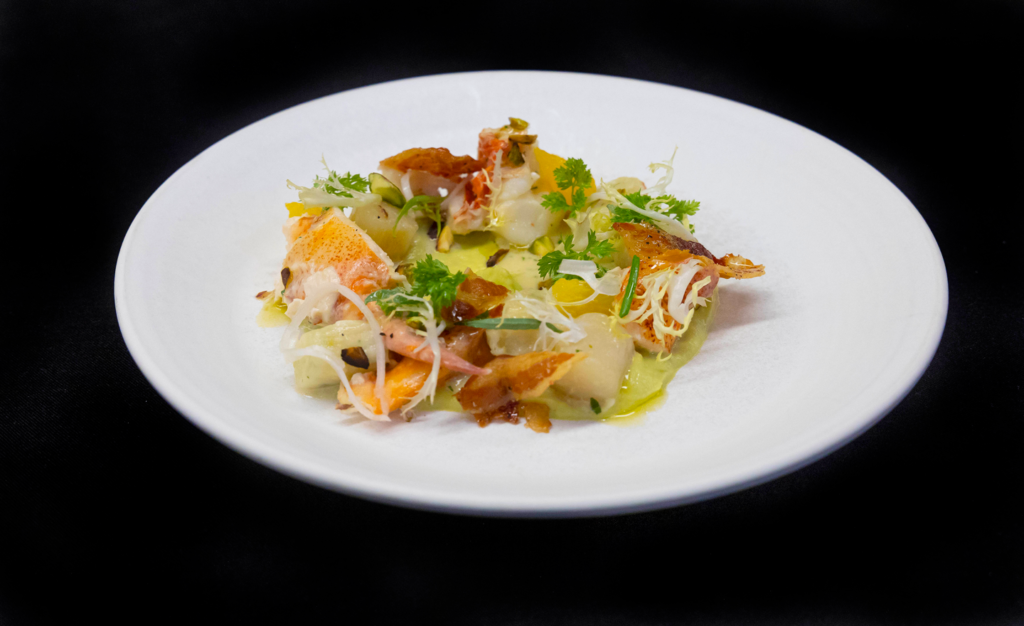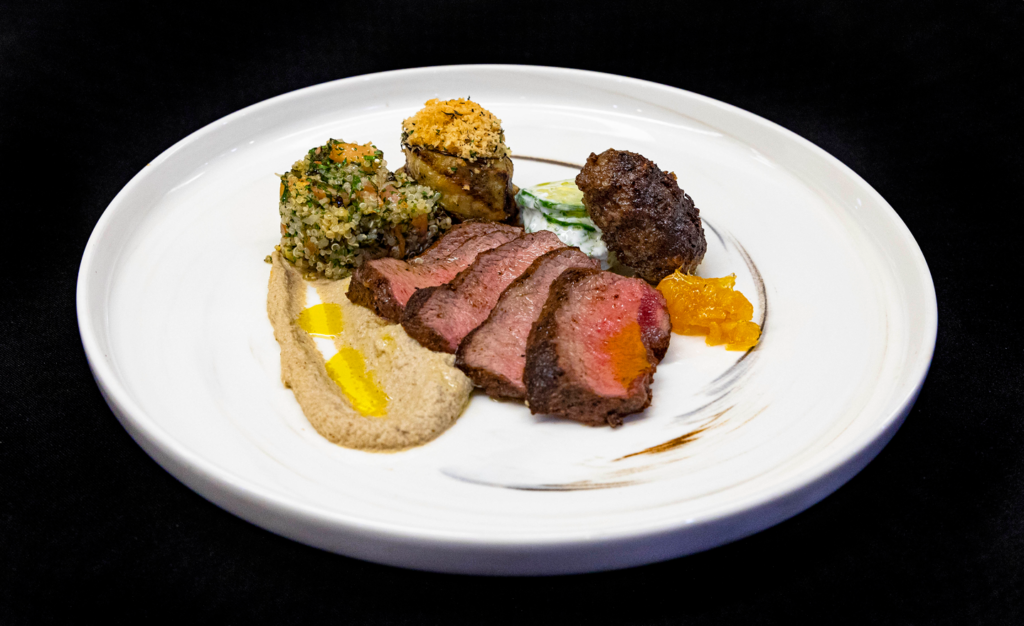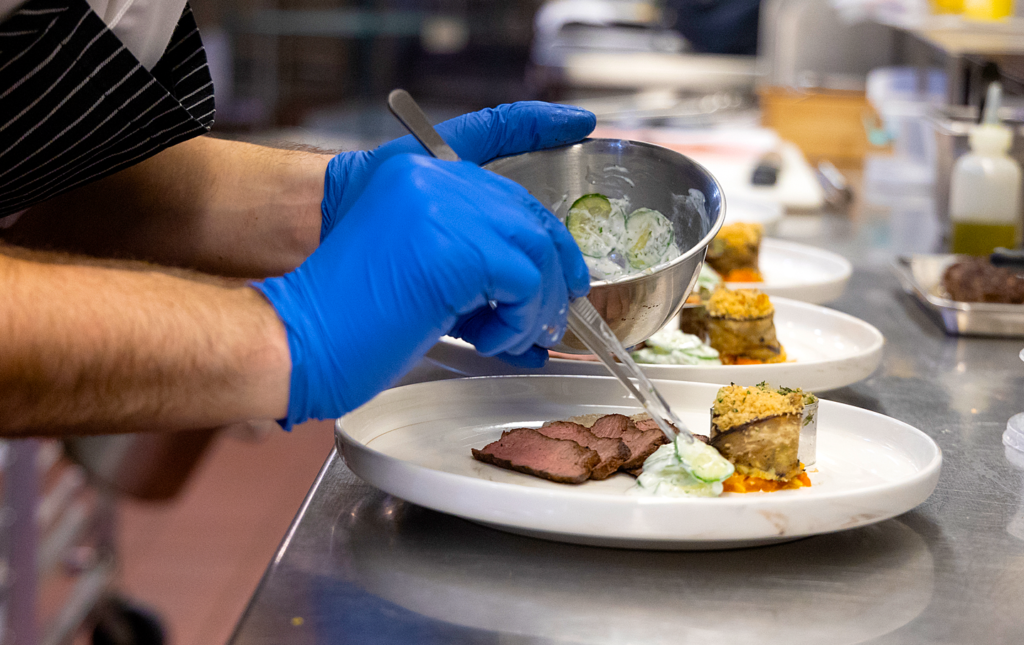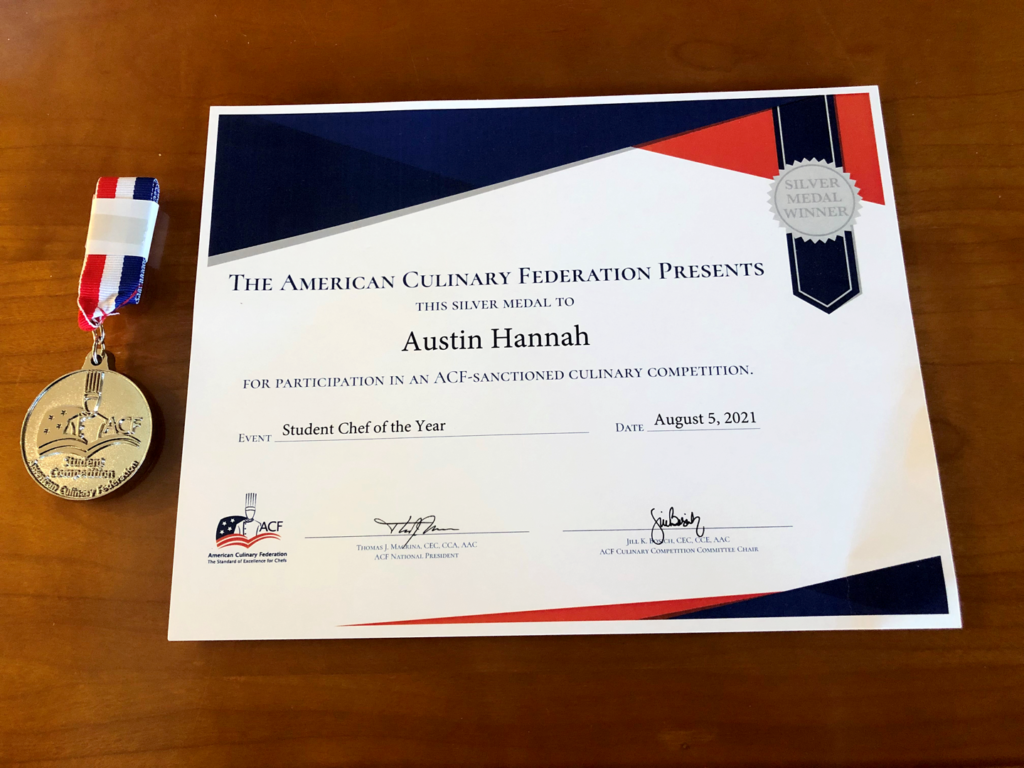There are fewer than 80 Certified Master Chefs in the world
Schoolcraft College is on its way to having two members of its faculty become Certified Master Chefs® (CMC) as both Chef Paul Grosz and Chef Drew Sayes advanced out of Segment 1 of the recent American Culinary Federation’s (ACF) CMC exams.
The exams were held March 18-21 in the American Harvest restaurant in the VisTaTech Center on the main campus of Schoolcraft College. Segment 2 will be held later this year.
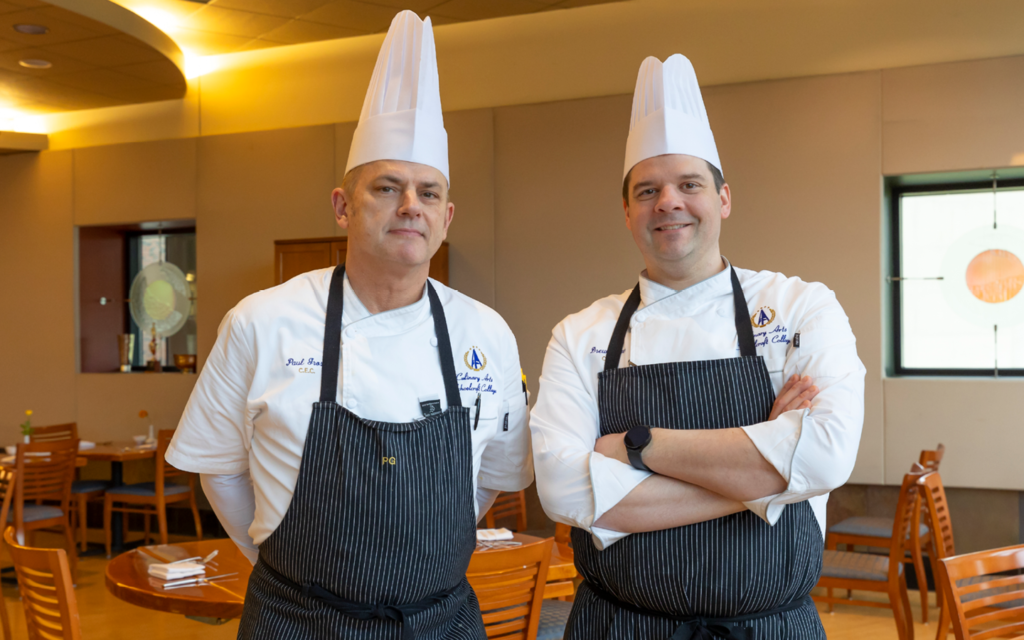
A CMC is considered the highest level of the profession, and demonstrates mastery of culinary competence and expertise through education, experience, knowledge and skills consistent with the master chef level. The exam was first commissioned and offered in 1981.
There are fewer than 80 Certified Master Chefs in the world, with Brian Beland, Schoolcraft College’s Department Chair of Culinary Arts, among those to hold this distinguished ranking. In addition, faculty member Joseph Decker is a Certified Master Pastry Chef® (CMPC).
Chef Grosz serves as full-time instructor and currently teaches classes associated with the American Harvest lunch service. He is co-proprietor and Chef of Cuisine Restaurant. Chef Sayes, a 2003 Oakland Community College graduate, has been a full-time instructor since January.
“We are extremely happy for the excellent results by Chef Grosz and Chef Sayes in Segment 1 of the CMC exams,” Chef Beland said. “We wish them the very best on Segment 2 and have every confidence they will do well.”
To apply for the exam, candidates must already be a Certified Executive Chef or Certified Culinary Educator, provide a letter of recommendation from current CMCs or CMPCs, and have completed education courses on sanitation and food safety, management, cost management and wine.
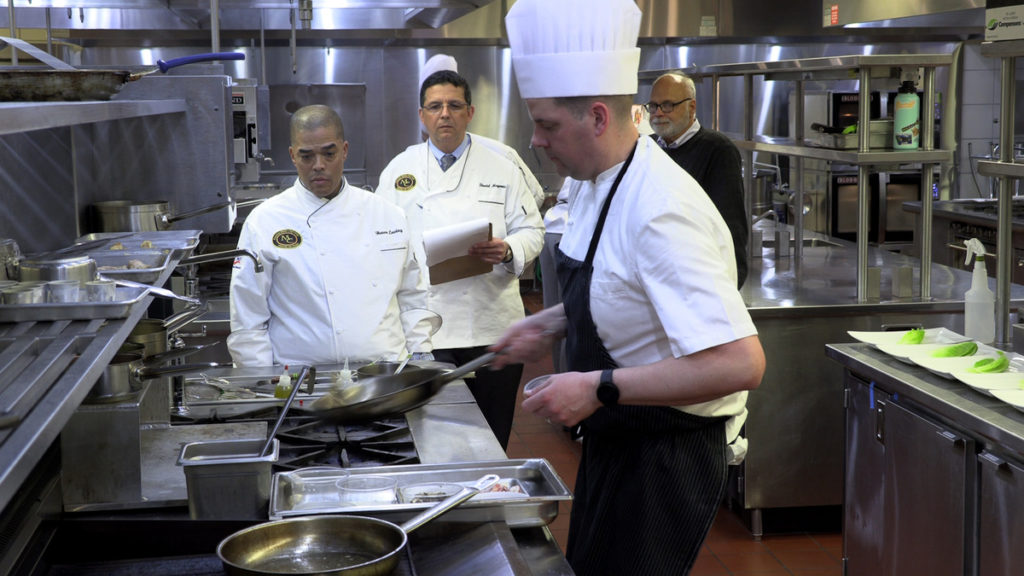
The exam modules included:
- Freestyle Cuisine
- Healthy Cooking
- Global Cuisines
- Pastry and Baking
Both Chef Grosz and Chef Sayes shared feelings of relief after the grueling exam wrapped up.
“When (it was over), I felt a bit of relieve and accomplishment, but only for a short time knowing that Segment 2 is not far behind,” Chef Grosz said. “The work is not done. We’ll take a short break, then start practicing for an excruciating next part of the exam.”
Chef Sayes echoed those thoughts.
“When the exam concluded, I was relieved and exhausted,” he said. “I was also slightly disappointed that it ended. I was gaining a lot of momentum and confidence going through each discipline; I wanted to continue and carry that into the next segment.”
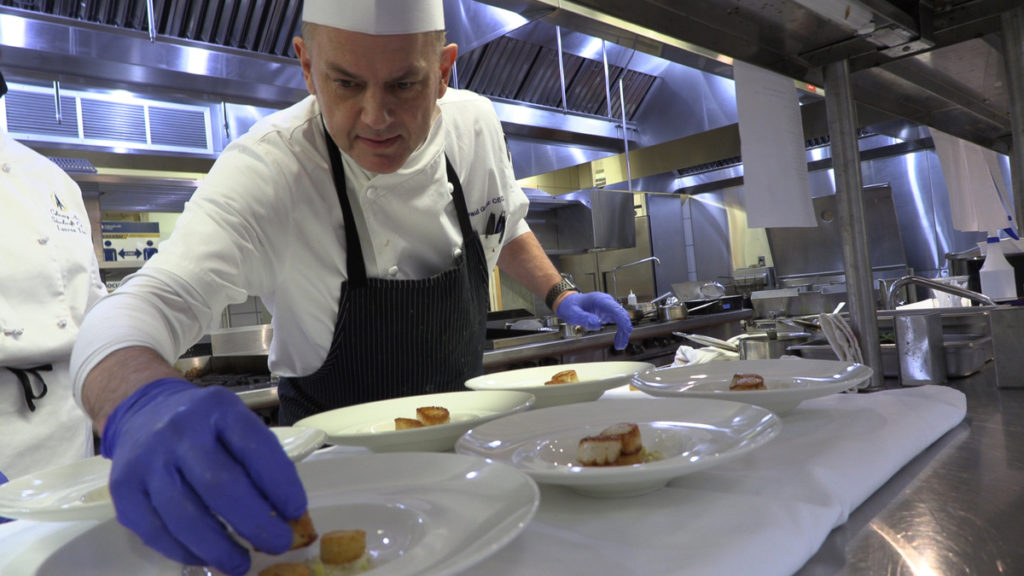
Despite the intense pressure, each Chef felt the exam went well.
“It was the most intense experience I’ve had in my career,” Chef Sayes said. “It was challenging to adjust my mindset each day and mentally preparing for the next discipline. Lack of sleep caused by constantly thinking about what’s next also made it difficult to focus on the task at hand. Through all of that, it was a great experience and I ended up having a lot of fun throughout the process.”
Added Chef Grosz: “I feel the CMC exam went very well. What I enjoyed mostly out of it was the adrenaline during the cooking time period while we were being judged on every move we made. Cooking at the highest level in a time limited situation while experts in the field were scrutinizing everything you did was very nerve-wracking.”
Each is looking forward to the next phase of the exam.
“There’s still a lot of work to do,” Chef Sayes said. “Luckily, I’m able to take the summer and prepare. I’m looking forward to the next challenge.”
Chef Grosz also emphasized how learning never stops, taking the American Master Chefs’ Order’s motto of “Forever the Student” to heart.
“This has been 30 years in the making for myself because as a chef we continue to always learn,” he said. “Taking this exam has made me a better person, a better chef and ultimately a better instructor. I just want to thank everyone for all their support as we continue this journey. My family, Schoolcraft, my fellow instructors and the staff at Cuisine. Without their support, this would not be possible.”
Learn more about Schoolcraft College’s Culinary Arts program.

